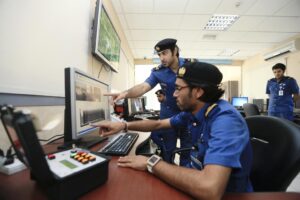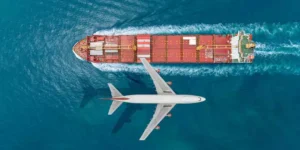Common Mistakes to Avoid When Shipping Cargo Internationally
International cargo shipping isn’t just a matter of placing goods on a vessel or plane and waiting for them to appear in another country. It’s a constantly shifting puzzle of regulations, paperwork, logistics alignment, and cultural nuance. Every shipment is a live transaction across multiple governments, time zones, currencies, and risk zones. One error, one unchecked box, or one misread Incoterm can cause delays that ripple into profit loss, broken contracts, or even regulatory penalties.
Shipping across borders is no place for assumptions. Yet that’s where many businesses fall. They treat international cargo like a scaled up domestic delivery. They Google a few terms, call a forwarder, fill out a form and assume it’s enough. It isn’t. Ask anyone at Al Usood, and they’ll tell you the most expensive shipping mistake isn’t paying too much. It’s thinking you know enough when you don’t.
Customs Isn’t a Rubber Stamps
One of the most frequent and costly mistakes in international shipping is underestimating the customs process. Some think a commercial invoice and packing list are enough. In reality, customs clearance involves classification codes (HS Codes), certificates of origin, phytosanitary documents, fumigation certificates, permits, and in many countries
product specific documentation. A missing certificate or a wrongly classified item can result in the cargo being seized or delayed indefinitely.
Worse yet, using the wrong HS code can trigger incorrect duties. We’ve seen businesses lose tens of thousands over a two-digit error. That’s why at Al Usood document verification isn’t a formality it’s a process of due diligence. Before your cargo moves, we move through your paperwork with surgical precision.
Incoterms Misread Responsibilities Misplaced
FOB, EXW, DDP, CIF every Incoterm determines who pays for what, who handles what, and who’s liable when something goes wrong. Many companies, especially newer exporters, choose Incoterms without understanding the legal and financial implications. For example, choosing DDP (Delivered Duty Paid) without local knowledge means the shipper is responsible for customs clearance and taxes in the destination country a nightmare without proper coordination.
At Al Usood, we often re-negotiate Incoterms before the shipment even moves. Not for profit, but to avoid the kind of mistakes that destroy profit later. Misplaced liability is a slow poison in international cargo it doesn’t hurt at first, but it always hits eventually.
Improper Labelling and Language Blind Spots
You can have perfect cargo and paperwork, but if your outer labels don’t meet the destination’s local standards, your goods won’t move. Some countries require product labelling in native language, weight in metric, expiration dates in a specific format, or even traceability codes based on the importer’s registration.
Labelling errors may seem minor, but they can lead to rejections or mandatory relabelling at the port on your dime. Al Usood’s global documentation matrix ensures that what’s outside the box is as compliant as what’s in it.
Overlooking Local Infrastructure Limits
Just because your shipment cleared customs doesn’t mean it can be delivered. Some regions lack cold storage, heavy equipment, or safe warehousing. Others have poor roads or strict delivery curfews. Ignoring these local limitations leads to delays, damage, or forced rebooking.
We’ve seen shipments of sensitive electronics sent to destinations with no indoor unloading facility in peak monsoon. That’s not just a delay that’s a write-off. Al Usood pre-screens every destination’s capabilities and matches it with the cargo’s sensitivity before loading. Logistics without ground intelligence is guesswork.
Assuming One Size Fits All
The costliest assumption? Believing the same approach works everywhere. A supply chain that hums smoothly between UAE and Germany might fall apart between China and Kenya. Import bans, restricted items, weekend schedules, religious holidays all these create unpredictable friction.
We’ve worked with businesses that assumed they could import leather goods into India without knowing about religious restrictions in certain states. Or that they could send spare parts to Nigeria without pre-registration with the Standards Organisation. Global shipping isn’t just logistics it’s geopolitics, economics, religion, and infrastructure rolled into one. That’s why Al Usood operates by lane logic tailoring strategy per country pair, not just cargo type.
Not Insuring International Cargo Properly
It’s shocking how often cargo worth six or seven figures moves uninsured. Some rely on basic carrier liability, which only covers a few dollars per kilo. That’s pennies on the dollar when disaster strikes. International shipping crosses multiple jurisdictions, and legal recourse can be complicated or non-existent.
Full coverage cargo insurance isn’t just about theft or damage. It’s about political unrest, strikes, piracy, and natural disasters. At Al Usood, we offer risk assessments for every shipment and push for insurance not because we want to upsell but because we’ve seen what happens when it’s missing.
Mismatching Cargo to Carrier Capabilities
Every shipping line and airline has its quirks. Some carriers excel in certain regions or cargo types, while others are poor at documentation or reliability. Yet many shippers go with the cheapest rate. That might work domestically but internationally, the cheapest carrier often costs the most.
At Al Usood, we maintain detailed carrier performance data. We know who to use for time sensitive perishables out of Nairobi. We know who handles dangerous goods best from China. And we know which routes are more likely to miss transshipment cutoffs. That’s not a spreadsheet it’s years of global learning.
Ignoring Currency and Payment Risk
Shipping internationally means dealing with multiple currencies, variable exchange rates, and cross border payment policies. Many small to mid-sized exporters forget to hedge or lock exchange rates, leading to surprising gaps between quoted and received payments. Some destinations also have capital controls or slow bank processing.
Working with Al Usood means factoring in not just logistics costs but financial flows. Shipping isn’t finished when the container is delivered. It ends when the payment clears.
FAQs: The Borderline Truth
Q1: What’s the biggest cause of cargo delays at customs?
Incorrect or incomplete documentation. Specifically, mismatched invoices, wrong HS codes, or missing certificates are top culprits.
Q2: Can I ship under DDP even if I don’t have a local agent at destination?
Technically, yes. But it’s highly risky. You’ll be responsible for duties, taxes, and compliance in a foreign market. Best to coordinate with an experienced forwarder like Al Usood or avoid DDP entirely.
Q3: Is ocean freight safer than air for international shipping?
Not necessarily. Both have risks. Air is faster but rougher on handling. Ocean is slower and more exposed to theft or spoilage. The choice depends on cargo type, urgency, and packaging.
Q4: How do I know if I need an import license at destination?
Research the destination country’s import regulations for your specific HS code. Better yet, let a partner like Al Usood verify it. Requirements vary widely between nations.
Q5: Can I reuse packaging from domestic shipments for international exports?
Rarely advisable. International cargo faces harsher conditions, inspections, and regulatory scrutiny. Packaging must meet both protection and compliance standards.
Q6: What should I check before booking an international shipment?
Confirm Incoterms, HS code accuracy, documentation completeness, carrier compatibility, destination clearance rules, labelling compliance, and insurance. Or work with a forwarder who checks them all like Al Usood.
International cargo shipping is like chess on a world map. Every move affects the next. Every country plays by different rules. You can’t bluff your way through it and you shouldn’t try. Mistakes here don’t just cost money; they cost time, credibility, and opportunity.
At Al Usood, our job isn’t just to move your cargo. It’s to see the traps before you step into them. Because in global logistics, the most powerful thing isn’t speed or price it’s foresight.





